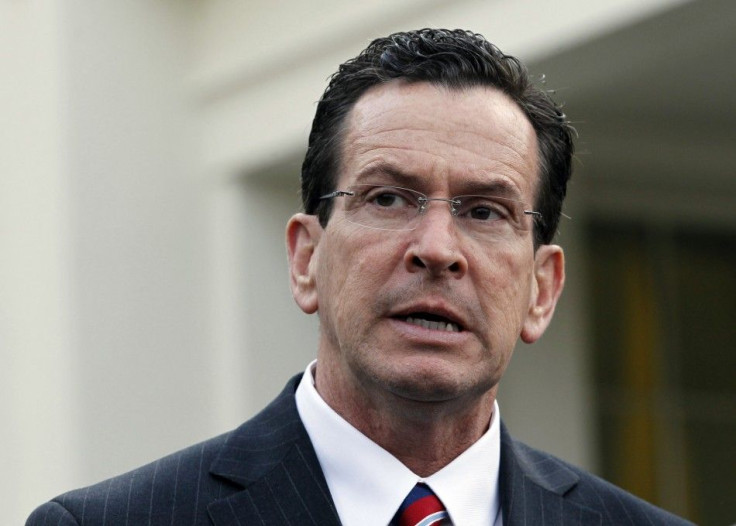Connecticut governor proposes across-the-board tax hikes to cut budget deficit

Yet another American state has proposed comprehensive tax hikes in order to address a gaping budget deficit.
The newly-elected governor of Connecticut, Democrat Daniel P. Malloy, has presented a budget for fiscal 2012 that will increase state income and sales tax by $1.5 billion.
Of that total, 81 percent will be borne by individuals, with the remaining 19 percent paid by businesses.
Under the proposal, the general sales tax rate would climb to 6.25 percent from 6 percent, generating an additional $461 million.
Right now, we're in pretty tough shape,” the governor said. “We're staring down the barrel of a deficit of over $3.2 billion dollars. At 20 percent of revenue, this places us among the hardest-pressed states.
Taxes would be levied on an array of services, including even manicures, haircuts, car washes, cosmetic surgery and non-prescription drugs.
Already existing taxes on booze, smokes and gasoline would also rise. Cigarette smokers will pay $3.40 per pack in tax, up 40 cents from last year, auto owners will pay a tax of 28 cents per gallon of gasoline, up 3 cents from before.
Moreover, a sales tax exemption on clothing under $50 will be eliminated. Homeowners will also lose a $500 property tax credit.
There will not be five tax brackets in the state, instead of three, and the income taxes will become more progressive, with a greater tax burden to be placed upon the state’s wealthiest residents.
Asking virtually everyone to share a slightly higher tax burden is the only way we can ensure that no one group of people bears a much higher burden, Malloy said.
The highest tax bracket -- which comprises individuals earning more than $500,000 or couples raking in at least $1 million -- will rise to 6.7 percent from 6.5 percent.
Benjamin Barnes, secretary of the Office of Policy and Management, estimated that about 38 percent of the tax package will be paid by taxpayers making more than $250,000. [Connecticut is the third richest state in America, with respect to median income.]
Malloy further warned the state worker unions that they will have to make concessions –like a wage freeze -- in order to avoid massive layoffs.
My Administration has received some ideas from state employee union leaders which have the potential to save the state some money — and I appreciate those ideas,” he said.
“But they're not nearly enough. The time has come to take the next step and begin discussions regarding concessions,
Malloy said he needs to save $1 billion a year over the next two years through savings and concessions by the unions.
© Copyright IBTimes 2024. All rights reserved.





















